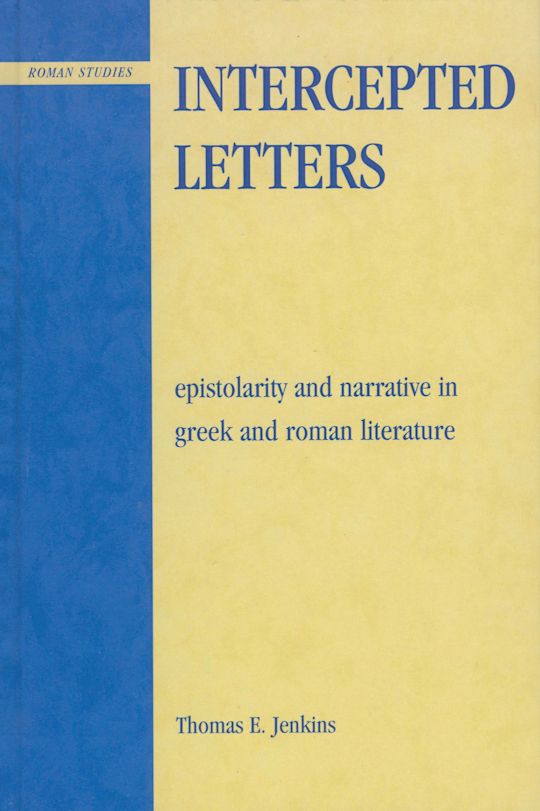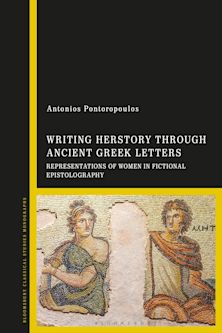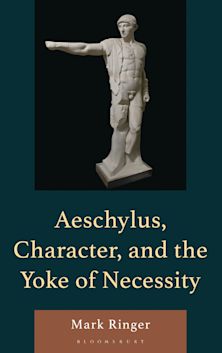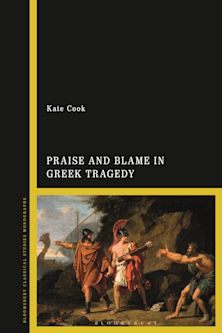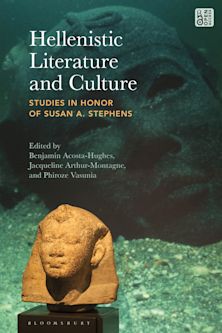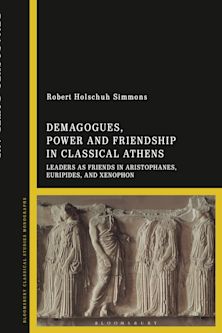- Home
- ACADEMIC
- Classical Studies
- Ancient Greek Literature
- Intercepted Letters
Intercepted Letters
Epistolary and Narrative in Greek and Roman Literature
Intercepted Letters
Epistolary and Narrative in Greek and Roman Literature
This product is usually dispatched within 1 week
- Delivery and returns info
-
Free CA delivery on orders $40 or over
You must sign in to add this item to your wishlist. Please sign in or create an account
Description
Intercepted Letters examines the phenomenon of epistolarity within a range of classical Greek and Roman texts, with a focus on letters as symbols for larger, culturally constructed processes of reading, writing, and interpretation. In addition, it analyzes how the epistolary form occasionally problematizes-for lack of a better word-the introduction of the technology of writing into cultures already heavily implicated in the authority of the spoken, or sung, word. The methods of intertextuality and reader-response theory that have so revolutionized other aspects of classical scholarship have not, in the main, been applied to epistolarity studies; studies of epistolarity have instead tended to focus on individual collections: Cicero's letters, Pliny's letters, Plato's letters. Epistolarity that occurs in larger narrative contexts (such as tragedy, oratory, and historiography) remains woefully under-theorized; moreover, a consistent thread in the introduction of epistolarity into non-epistolary contexts is that of a destabilizing or dislocating narrative device. Intercepted Letters argues that epistolarity has certain formal features that can be found evenoutside of epistolary collections, including the problematics of communication, an emphasis on authorial absence, a hypersensitivity to interpretation, and an implicit focus on power (who controls the voice?). These aspects are as integral to studies of epistolary episodes as sheep, flutes, shepherds, and amoebic poetry are to pastoral ones, and yet seem to be comparatively neglected, or else formulated as individual observances rather than a pattern. Intercepted Letters thus examines a number of epistolary tropes-in authors as wide-ranging as Euripides, Ovid, and the authors of the Historia Augusta-as it argues for the importance of epistolarity in analyzing the poetics of reading in the ancient world.
Table of Contents
Chapter 2 Palamedes and the Death of the Author
Chapter 3 Cicero's Wayward Letters
Chapter 4 Epistolary Warfare
Chapter 5 Forsenic Letters
Chapter 6 Kinetic Letters in Drama
Chapter 7 Ovidian Letters
Chapter 8 Letters in the Historia Augusta
Chapter 9 Postscript
Chapter 10 Bibliography
Chapter 11 Index
Product details
| Published | Oct 27 2006 |
|---|---|
| Format | Hardback |
| Edition | 1st |
| Extent | 178 |
| ISBN | 9780739117149 |
| Imprint | Lexington Books |
| Dimensions | 238 x 161 mm |
| Series | Roman Studies: Interdisciplinary Approaches |
| Publisher | Bloomsbury Publishing |
About the contributors
Reviews
-
This is a thoughtful and well-written analysis of an understudied phenomenon in ancient literature. Jenkins's chapters sparkle with erudition and lucid discussion in a manner that draws the reader into a complex and playful world of misdirected missives. His topic raises issues that sit squarely at the intersection of classical studies and post-modern literary theory, and he is to be commended for showing equal competence in both fields, and in a style that is extremely enjoyable to read. In sum, a fine work of elegant complexity that bodes well for this young scholar.
Richard Armstrong, Associate Professor of Classical Studies, University of Houston









